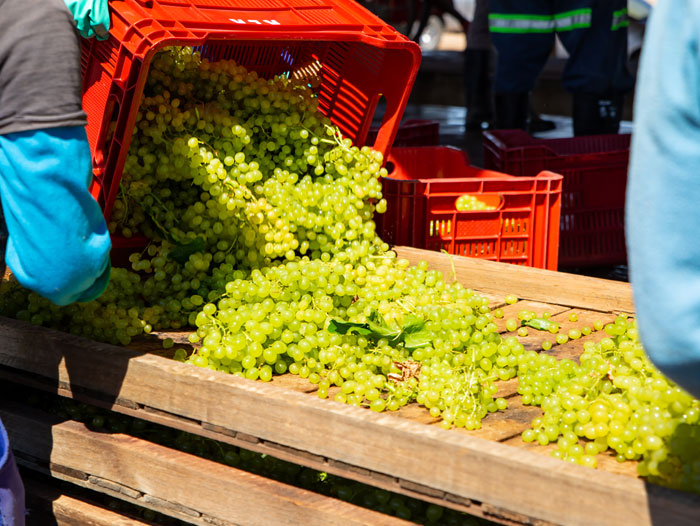UK Growth for South African Raisins
January 19, 2022 | 2 min to read

The South African raisin industry reports continued growth at the end of the 2021 season, despite climatic challenges.
Regardless of limitations faced by the industry, export volumes of South African raisins to the UK are up once again vs 2020, which saw a huge increase compared to 2019. The UK imported 1,430,000 kg to the UK in 2019 vs 5,514,500 kg in 2020. 2021 saw an 18% increase vs 2020 with 6,626,996 kg exported to the UK.
The Orange River region, where 88% of the country’s raisins are produced, experienced between 80mm – 170mm of rain at the beginning of last year. These conditions were exceptional for the Northern Cape, which usually experiences average temperatures of between 33-38 degrees C during harvest. Strategies were put in place at farm level to mitigate the impact of the rains on the crop, such as canopy management and constant monitoring of the situation.
Ferdie Botha, CEO of Raisins South Africa, comments: “From a grower perspective, climatic conditions for the past season did not provide for optimal growing conditions. Conditions were constrained in the Orange River valley initially by frost and cold weather conditions, which perhaps negatively impacted more than initially anticipated. Furthermore, the Orange River came into flood and restricted access to some growers, along with above average rainfall, and required changes in production practices to minimise the impact.”
The Olifants River valley in the Western Cape, however, experienced excellent growing conditions, particularly for currants.
Another product that was also less impacted by the rains, was the ‘SA Sultana’, formerly known as the ‘WP raisin’. Raisins South Africa relaunched the variety this year after the gradual increase in production volumes and as part of the diversification of their product range.
Raisins South Africa have now focused their attention on 2022 and are optimistic about the season ahead. The UK promotional campaign will once again concentrate predominantly on evolving connections with B2B and trade contacts, as well as communicating the benefits of South African raisins to consumers.
